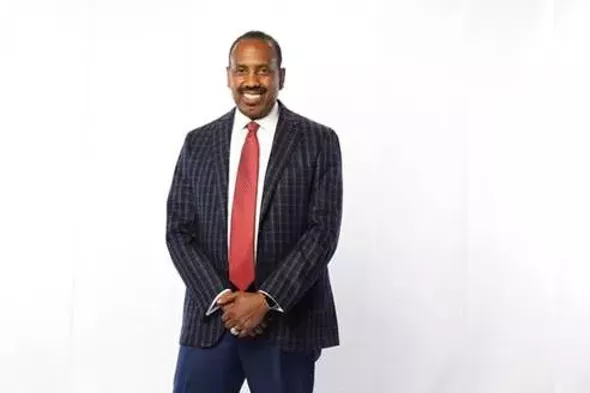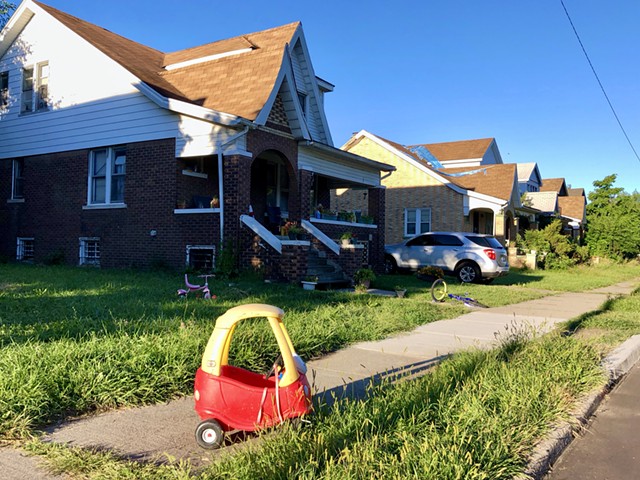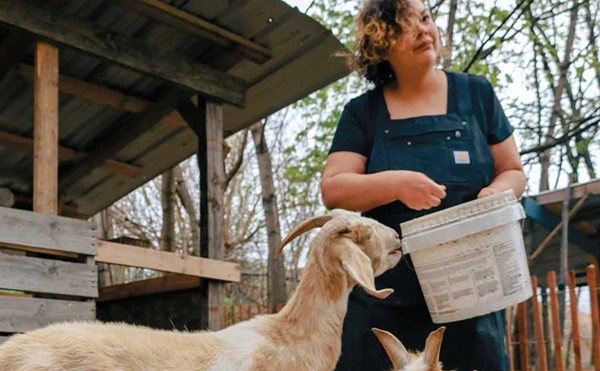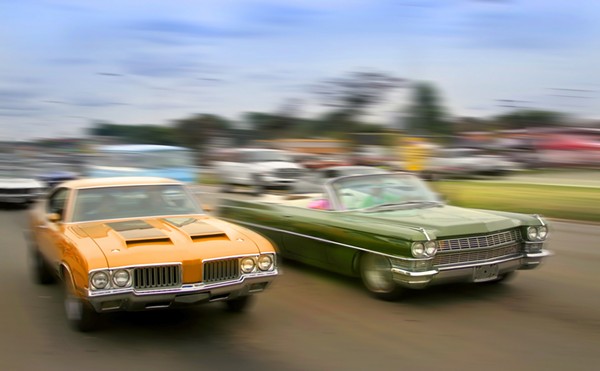Bishop Jackson says Black voters are more energized in 2020 — but don't take them for granted
[
{
"name": "GPT - Leaderboard - Inline - Content",
"component": "35519556",
"insertPoint": "5th",
"startingPoint": "3",
"requiredCountToDisplay": "3",
"maxInsertions": 100
}
]
When Detroit's Bishop Wayne T. Jackson, founder of the African American-oriented Christian TV network Impact Network, interviewed Donald Trump in 2016, the then-Republican candidate predicted that he would win a significant percentage of Black voters.
That didn’t happen. According to Pew Research Center, the Black voter turnout rate declined for the first time in 20 years in a presidential election that year, falling to 59.6% after reaching a record-high 66.6% in 2012. In fact, it was the largest percentage-point decline among any racial or ethnic group in years.
Despite the fact that he's a self-described "lifelong Democrat," Jackson says Hillary Clinton's campaign never responded to his request for an interview. Trump, of course, wound up winning in a surprise upset, and Jackson was later invited to give the benediction ceremony at Trump's inauguration.
In the Black community, the church has long been central to politics. "Martin Luther King Jr., John Lewis, God bless him, these individuals, they planned their marches in the churches," he says. "When you look at a tradition, tradition is that candidates will come to the churches and they get support from the pastor, who would endorse that candidate."
Due to the pandemic preventing normal church services, Jackson says that Impact Network has seen record numbers in viewership. This year, however, Jackson did not reach out to Trump nor Democratic candidate Joe Biden. Instead, he's focused on using his platform to encourage his audience to vote.
Jackson, who helms Great Faith Ministries International on Grand River Avenue in Detroit, launched the network a decade ago with a $150,000 investment. Now, the Impact Network reaches 90 million homes across the U.S. and Africa.
"Now we're showing the people that it so important to have your vote count, because we feel that voting is sacred," he says. "So many people shed blood and to give us a right to vote."
Jackson says what he's seeing now in terms of enthusiasm from Black voters is more similar to what he saw in 2008 and 2012, when they turned up to support Barack Obama, the first Black president.
"It was so much hope and people looking for a change, and it really worked," he says. "It was like a revival in the community. I didn't notice that in 2016."
The energy this year is palpable, he says. "I'm hearing from so many people that they're getting out the vote, and that they're going to vote, getting young people to vote for their first time," he says.
But just because Black voters are more energized doesn't mean they're necessarily energized for the Democratic Party, Jackson says.
"I talked to ministers all over the country and what I'm hearing and what I'm seeing is that, I would say that it's a mix," he says. "I would have thought that because of all [Trump's] divisiveness it would be more of a slam dunk for the Democrats. But I've heard from both sides."
Jackson doesn't blame them. "Every year, politicians come and they make these promises, and then when it's time to really change things, you don't see it," he says. "And then they give up because whether they're Republican or Democrat, they're making promises to the people and the people are not seeing it."
Jackson thinks things are different this year. Before, people didn't know Trump as a candidate because he was a political outsider. And Clinton was tarnished for many because the crime bill that passed when Bill Clinton was president led to record numbers of incarcerated Black people.
Jackson thinks Biden will benefit due to his association with Obama as his former Vice President, as well as his choice to pick Sen. Kamala Harris, a Black woman, as his running mate. He believes the COVID-19 pandemic, which has disproportionately harmed African Americans, will also be a major factor in how people vote.
"I would give advice to both candidates," he says. "Republican or Democrat, I would not take anything for granted."
Stay on top of Detroit news and views. Sign up for our weekly issue newsletter delivered each Wednesday.







